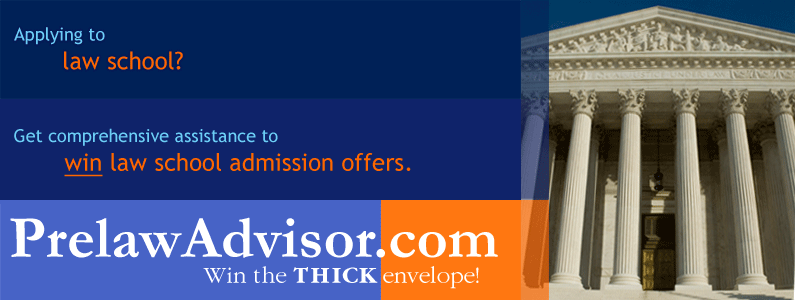PrelawAdvisor.com Advisee Admission Successes, 2006-2007 Admission Cycle
 Monday, October 8, 2007 at 09:19PM
Monday, October 8, 2007 at 09:19PM PrelawAdvisor.com advisees earned admission offers from the following schools during the 2006-2007 admission cycle. This cycle appears to me to have been the most challenging for applicants since I began working in law school admissions in 1996. Plan carefully as you think about application efforts this fall for a 2008 law school start, or if you are considering an effort to transfer upward from your current law school. Feel free to contact me at BradDobeck@aol.com. Please see my website www.PrelawAdvisor.com for more information about my approach to assisting law school and graduate school applicants.
- American University, Washington College of Law.
- Boston College Law School.
- Boston University School of Law.
- Brooklyn Law School.
- University of California, Berkeley School of Law (Boalt Hall).
- Benjamin N. Cardozo School of Law, Yeshiva University.
- The Catholic University of America, Columbus School of Law.
- Columbia University, School of International and Public Affairs.
- Cornell Law School.
- Duke University School of Law.
- Fordham University School of Law.
- George Mason University School of Law.
- George Washington University Law School.
- Georgetown University Law Center.
- University of Michigan Law School.
- New York University School of Law.
- Northwestern University School of Law.
- University of Pennsylvania Law School.
- Seton Hall University School of Law.
- University of Virginia School of Law.
- University of Washington School of Law.
- Washington University in St. Louis School of Law.
- William & Mary Law School.

